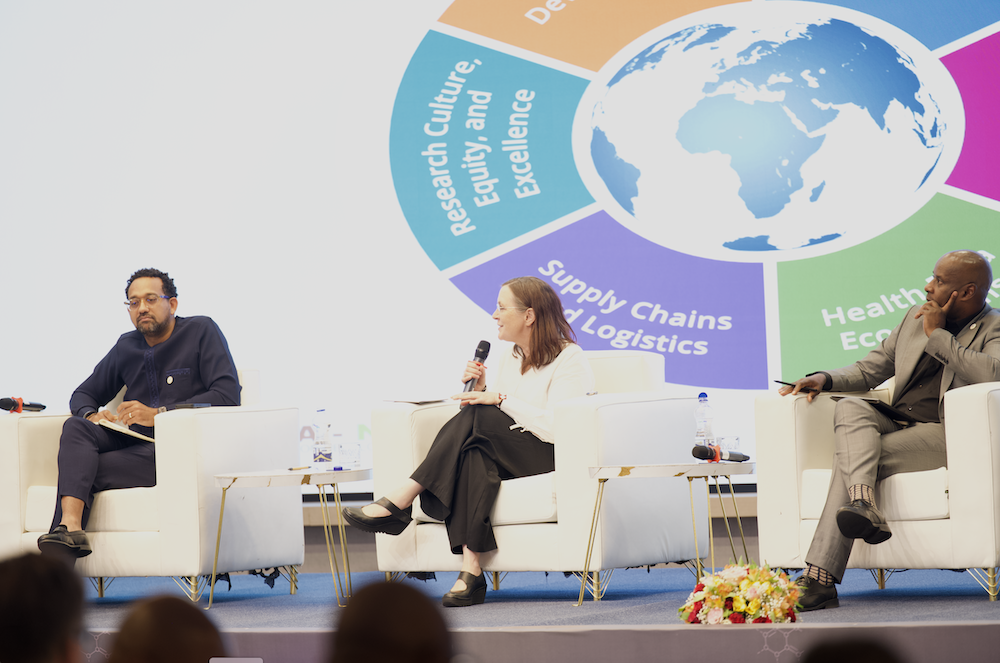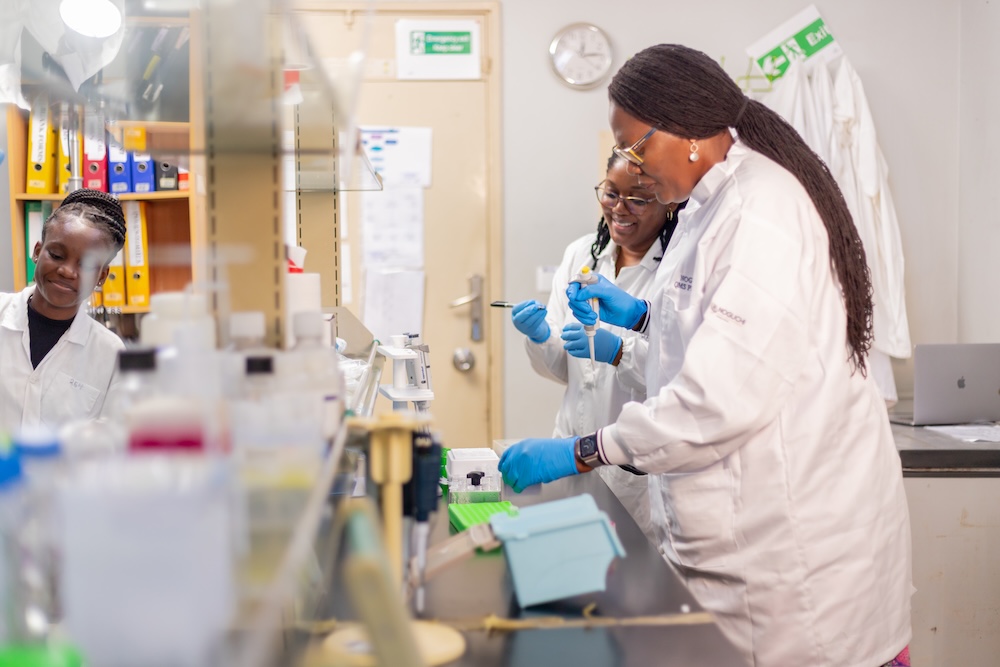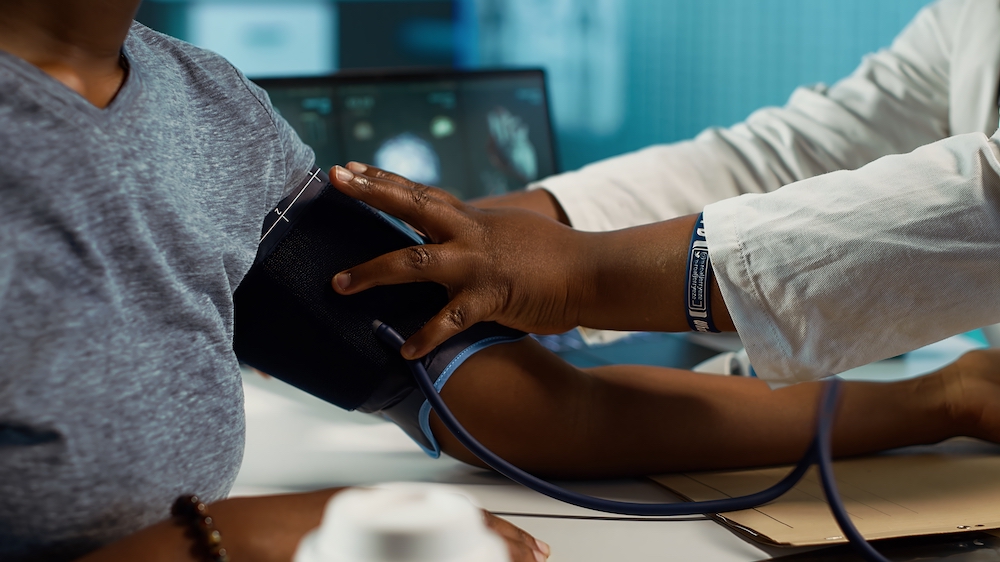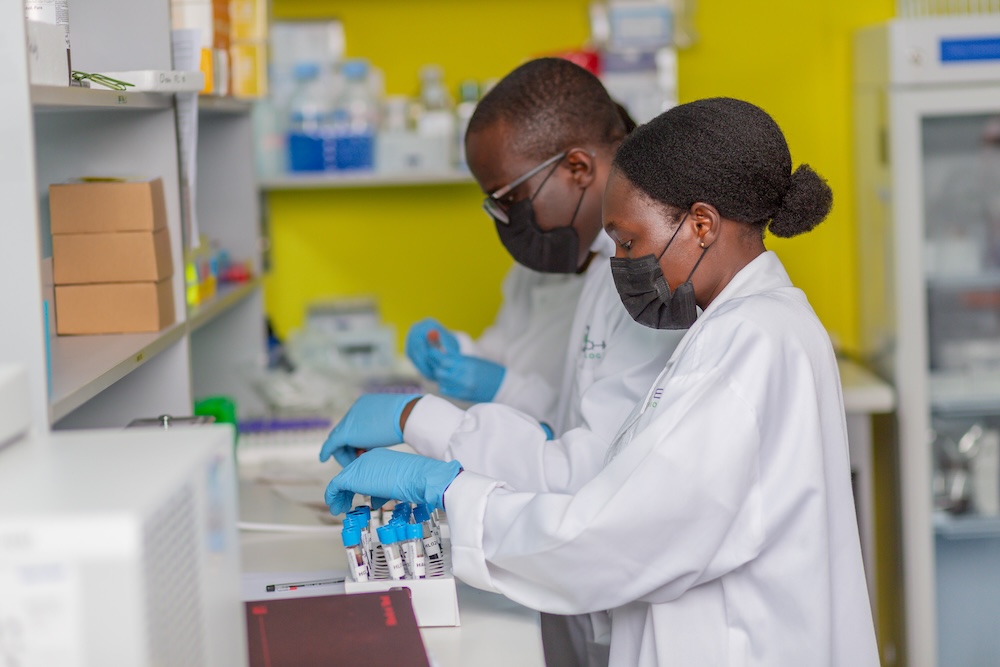
Media Centre
African Microbiomes in Health and Disease Symposium and the Launch of the Microbial Interactions Laboratory (MIL)
Monday, September 30, 2024
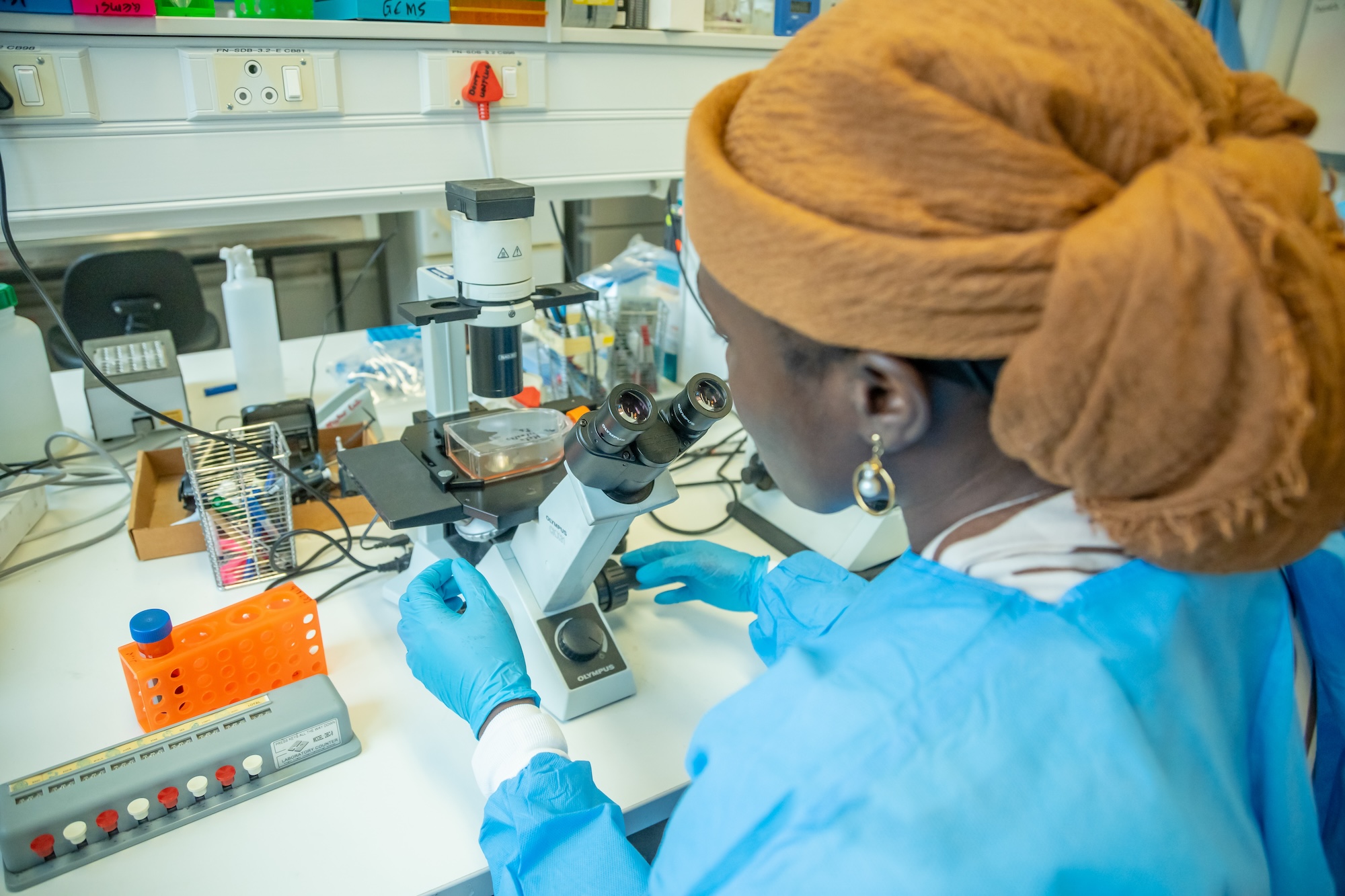
Cape Town, South Africa —The microbiome, which includes the trillions of microorganisms that live in and on the human body, has emerged as a crucial determinant of human health. But, despite Africa's immense microbiome diversity, information about African microbiomes is significantly underrepresented in global research. Now, a groundbreaking symposium and the opening of a new cutting-edge facility are set to play a part in ensuring that African microbiomes are represented in global knowledge systems, for more inclusive and representative global health solutions.
The African Microbiomes in Health and Disease Symposium will be hosted by the University of Cape Town’s (UCT) Institute of Infectious Disease and Molecular Medicine (IDM) from October 1-2, 2024. This two-day hybrid event will not only spotlight the significant role of microbiomes in health and disease on the African continent but will also address another sector of health that does not receive the attention it needs: women’s reproductive health. Vaginal microbiomes will be the central focus at this symposium, which brings together local and international stakeholders to shape the future of microbiome research across the African continent.
The symposium will coincide with the launch of the new Microbial Interactions Laboratory (MIL) at the IDM, a cutting-edge facility designed to contribute to the much-needed infrastructure for microbiome research in Africa. This facility will be a key part of a hub for microbiome research, offering support for scientists focused on understanding the impact of microbial communities on health in African contexts.
Focused on driving future solutions, the symposium and new facility aim to address critical research gaps, paving the way for the development of health interventions specifically tailored to African populations. Led by 4 co-chairs, the symposium is already fostering collaborations that will drive local research leadership and ensure the inclusion of African microbiome data in global health solutions. Co-chair Prof Jo-Ann Passmore, Principle Medical Scientists at the IDM (UCT) and Calestous Juma Science Leadership Fellow said, “This is a call to action. Africa's unique microbial diversity holds the key to developing diagnostics and treatments that are relevant not only to Africans but to the world.”
Co-Chair Prof Lenine Liebenberg, Chief Researcher at the Centre for Epidemic Response and Innovation (CERI) at Stellenbosch University puts it another way “Our diversity grants us a richness of perspectives and expertise. When we collaborate between disciplines, institutions and regions in developing our ideas, abilities, and each other, we fast-track the realisation of our shared visions. Who wouldn't want more robust, inclusive, and impactful scientific discoveries?”
For media inquiries, interviews, or more information, please contact:
Deidre Govender – [email protected] | +27 81 518 3061
Robert Inglis – [email protected] | +27 84 357 7333
Deborah-Fay Ndlovu - [email protected] | [+254 727 660 760]
Stay updated and register to attend the symposium online at: VMRC4Africa
About the Institute of Infectious Disease and Molecular Medicine (IDM):
The IDM at the University of Cape Town is a leading research institute focused on infectious diseases and molecular medicine, providing a platform for African scientists to lead world-class research efforts.
About VMRC4Africa:
VMRC4Africa is committed to developing a network of African researchers working on the microbiome, with a view to improving reproductive health and developing new treatments for Bacterial Vaginosis in African women.
Notes to the Editor:
Key Focus Areas of the Symposium:
- Vaginal Microbiome Research: This year’s symposium will have a strong focus on female reproductive microbiomes, particularly addressing bacterial vaginosis (BV), a major driver of genital inflammation and increased HIV acquisition risk in women. Prof. Jo-Ann Passmore, joint staff at the IDM, University of Cape Town, Principal Medical Scientist with the National Health Laboratory Service (NHLS) and lead of the Vaginal Microbiome Research Consortium for Africa (VMRC4Africa), will be spearheading discussions aimed at developing innovative treatments and diagnostics for BV.
- Diversity and Inclusion: The symposium will emphasize the importance of diversity in microbiome research, ensuring that African voices and female scientists are central in shaping the future of this field.
- Collaborative Efforts: At the heart of this meeting is a call for collaboration. Through panel discussions and presentations, the event will highlight the need for equitable research partnerships, ethical collaborations, and the development of standardized protocols for microbiome research in Africa.
- Artificial Intelligence (AI): Sessions at the symposium will address the role of AI in microbiome research, with a particular focus on informatics and microbiome data mining, as well as its role in precision medicine.
Launch of the Microbial Interactions Laboratory (MIL):
The symposium will officially launch the Microbial Interactions Laboratory (MIL), a new state-of-the-art facility aimed at strengthening Africa’s microbiome research infrastructure. The MIL will enable key partnerships between African researchers and international experts, support mechanistic research on microbe-to-microbe and microbe-to-host interactions and stimulate the development of microbiome-centered health solutions for the continent.
Dr Anna Happel, Senior research Officer at the IDM (UCT) and co-chair of the symposium: “The launch of the UCT IDM Mucosal Interactions Lab represents a bold affirmation of Africa’s vital role in the global microbiome narrative. By focusing on our unique microbial diversity, we are paving the way for innovative approaches to women’s and infant health, while ensuring that African voices and experiences are integral to the future of microbiome science".
Key Speakers:
- Prof. Jo-Ann Passmore (UCT), Chair of VMRC4Africa, will lead discussions on shaping the future of microbiome research in Africa.
- Prof. Elizabeth Bukusi (Kenya Medical Research Institute) will address gender, equity, and ecology in African health research.
- Prof. Tulio de Oliveira (Stellenbosch University) will focus on the role of partnerships in empowering African contributions to global health innovation.
- Prof. Ntobeko Ntusi (UCT) will explore empowering partnerships within women’s health research ecosystems.
- Prof. Jacques Ravel (University of Maryland Baltimore) will discuss microbial data mining and its role in microbiome research.
- Prof. Ovokeraye Oduaran (University of the Witwatersrand) will outline the five pillars essential for African microbiome research.
- Prof. Rob Knight (University of California, San Diego) will highlight the critical importance of integrating African microbiomes into global databases and explain why Africa's contribution is vital to the world.
How to Participate
The event is open to all, with free registration available through the VMRC4Africa website. It will be live-streamed, allowing participants from around the globe to join the conversation, engage with speakers, and contribute to the future of microbiome research in Africa.
Stay updated and register to attend the symposium online at: VMRC4Africa
More information on why it’s important for microbiome research to include African populations and African researchers
Where you live impacts your microbiome's diversity and composition. Climate, local diets, water quality, and hygiene practices shape your microbiome. Antibiotic use and urbanization can disrupt delicate microbial balances. Socioeconomic conditions and local pathogens further influence microbiome diversity, affecting overall health. Because of this, research carried out in one region cannot simply be transposed to another region. Microbiome research in Africa for Africa is thus crucial for understanding diverse genetics, local health challenges and unique microbial ecosystems. Addressing global research gaps in Africa will boost disease prevention on the continent, build local expertise and further fuel research equity.
Some additional quotes from conference partners and speakers
“I’m absolutely thrilled to see the launch of the MIL and to have played a small part in helping to bring this very exciting initiative to fruition. Nested within the highly collaborative, interdisciplinary environment of the IDM, the MIL is ideally placed to become a hive of activity and another example of research excellence in Africa, for Africa.”
Professor Valerie Mizrahi, University of Cape Town (UCT), South Africa
"Investing in African-led research is crucial for developing solutions that resonate with our communities. Our unique challenges require homegrown expertise and insights that only local researchers can provide." Dr Moses Alobo, Science for Africa Foundation (SFA Foundation), Kenya.
“Integrating molecular ‘omics approaches, such as genomics, transcriptomics, proteomics, and metabolomics, into microbial community profiling offers a more comprehensive understanding of our African microbial ecosystems. These techniques allow for a deep exploration of the genetic, functional, and metabolic characteristics of innate microbial communities.” Professor Adrian Brink, University of Cape Town (UCT), South Africa
"The creation of a Center of Excellence for microbiome research is essential for addressing the unique health challenges faced by African women. By focusing on our diverse microbiomes, we can develop targeted interventions that truly represent and serve our populations." Prof. Moses Obimbo, University of Nairobi (UoN), Kenya
“It is very exciting to see the launch of the Microbial Interactions Laboratory, a key new addition to the core research platforms available within UCT’s Institute of Infectious Disease and Molecular Medicine that already include world-class analytical infrastructure and expertise in flow cytometry, light microscopy, mass spectrometry, histopathology, and bioinformatics. The IDM’s vision is to be an international centre of excellence where world-class scientists work together to tackle diseases of major importance in Africa, and the creation of the MIL promises major advances in our understanding of African microbial ecosystems and the functional and genetic interactions that determine risk of disease development and infection outcomes.” Professor Digby Warner, University of Cape Town (UCT), South Africa
“At the heart of Africa’s microbiome research lies a vision of interconnectedness – where complexity is not a challenge, but the foundations of a thriving scientific ecosystem. Through collaboration, this is a call to action for building a HUB that mirrors nature’s most successful systems, bringing together diverse minds to tackle the health and ecological challenges of our continent cooperatively. Together, we are bigger than a sum of our parts!”
Professor Jo-Ann Passmore, University of Cape Town (UCT), South Africa
“Investing in research into the microbiome is critical for our understanding of the interplay between host genetics, pathogens and inflammatory processes. By understanding these interactions, we can make meaningful contributions to solve some of the most vexing problems of infectious diseases.” Professor Glenda Gray, former CEO South Africa Medica Research Center (SAMRC), South Africa
“With its rich two decade-long tradition of generating new knowledge on the vaginal microbiome, this collaborative initiative at UCT is poised to make yet more discoveries that will enhance women’s health. While the vaginal microbiome is a microscopic world within a woman’s body – it is diverse, dynamic and defensive. Studying these 3 “D’s” of the microbiome at this HUB is potentially transformative – enabling many African scientists in this field to collaborate with each other in order to address key challenges in the microbiome to improve women’s health.”
Professor Salim Abdool Karim, Centre for the AIDS Programme of Research in South Africa (CAPRISA), South Africa
